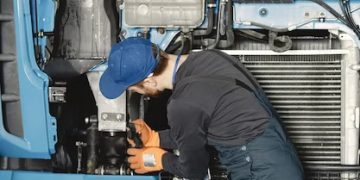The Indian automotive repair industry is a highly competitive and dynamic industry that requires mechanics and technicians to keep up with the latest advancements and trends. While technical expertise is undoubtedly a vital aspect of the job, the ability to communicate effectively with customers, work in teams, and solve problems quickly and efficiently is equally important. Soft skills are essential in the Indian context as customers expect personalised service and value clear communication.
Effective communication is crucial in the Indian automotive repair industry, especially considering the diverse cultures and languages in the country. Being able to communicate clearly and effectively with customers can build trust, reduce misunderstandings and ultimately, result in increased customer satisfaction. In addition, good customer service skills such as being courteous, empathetic, and patient can help repair shops build long-term relationships with customers.
Moreover, technicians with strong problem-solving skills can diagnose and fix issues more efficiently. In a time where customers expect speedy and quality services, quick and efficient problem-solving skills can lead to better outcomes, such as reduced repair time, fewer repeat visits, and higher customer satisfaction rates.
Furthermore, possessing soft skills helps mechanics and technicians work effectively in teams. As repairs can often require collaboration among technicians with different skills, the ability to work well with others can lead to better outcomes and results.
Overall, the Indian automotive repair industry is becoming increasingly customer-focused, and the ability to provide excellent customer service and build long-term relationships is critical for success. Soft skills are a key component of this customer-centric approach, and mechanics and technicians who possess strong soft skills will be well-positioned to succeed in the industry.
Examples of Soft Skills in Action in India
To understand the importance of soft skills in the Indian automotive repair industry, it’s useful to look at some real-life examples. One such example is of a mechanic in Mumbai who runs a small repair shop in a busy market area. Vinod Jadav, who has been in the business for over 25 years, attributes his success to his ability to communicate effectively with his customers. He speaks several languages, including Hindi, English, and Marathi, and takes the time to explain technical issues in simple language that his customers can understand. His shop has a loyal customer base, with many customers who have been coming to him for years.
Another example is Pradeep Basavaraj, a technician in Bengaluru who specialises in electric vehicles. Pradeep has a strong problem-solving ability and can quickly diagnose complex technical issues. However, what sets him apart is his ability to provide excellent customer service. He takes the time to understand his customers’ concerns and offers personalised solutions that meet their needs. Pradeep also keeps his customers informed throughout the repair process, ensuring that they are never left in the dark.
These examples demonstrate how soft skills play a critical role in the success of mechanics and technicians in the Indian automotive repair industry. In both cases, the mechanics and technicians were able to build long-term relationships with their customers by effectively communicating and providing exceptional customer service. Mechanics and technicians who can communicate effectively, provide exceptional customer service, and solve problems efficiently are highly valued in the industry. As the industry continues to evolve, the demand for mechanics and technicians who possess strong soft skills will only increase.
Tips for Developing Soft Skills
While some people may have a natural talent for soft skills, they can also be developed and honed through training and practice. Now that we’ve established the importance of soft skills in the Indian automotive repair industry and looked at some examples of these skills in action, let’s take a closer look at how mechanics and technicians can develop their soft skills.
- Invest in Training: While technical training is important, it’s equally important to invest in soft skills training. Many vocational schools and training centres offer courses in communication, customer service, and problem-solving. Mechanics and technicians can also consider attending seminars or workshops that focus on soft skills development.
- Seek Feedback: Asking for feedback from customers, supervisors, and colleagues is a great way to identify areas for improvement. Mechanics and technicians can ask customers to complete surveys or provide feedback online, or they can request feedback from their supervisors during performance reviews.
- Practise Active Listening: Active listening is a critical component of effective communication. Mechanics and technicians can practice active listening by making eye contact, nodding in agreement, and asking clarifying questions. By doing so, they demonstrate their interest in the customer’s concerns and show that they are committed to resolving the issue.
- Be Empathetic: Showing empathy toward customers can go a long way toward building long-term relationships. Mechanics and technicians can demonstrate empathy by acknowledging the customer’s concerns and expressing a willingness to help.
- Read and Learn: There are numerous books, blogs, and online resources available that provide tips and best practices for developing soft skills. Mechanics and technicians can use these resources to expand their knowledge and improve their soft skills.
- Use Technology to Your Advantage: There are many tools and technologies available today that can help mechanics and technicians improve their soft skills. For instance, customer relationship management (CRM) software can help track customer interactions and provide insights into their needs and preferences.
By investing in soft skills development, mechanics and technicians in the Indian automotive repair industry can improve customer satisfaction, increase repeat business, and build a strong reputation as skilled and trustworthy professionals.
Best Practices for Incorporating Soft Skills into Indian Repair Shops
While mechanics and technicians play a crucial role in the Indian automotive repair industry, it’s equally important for repair shop owners and managers to prioritise the development of soft skills among their employees. Here are some best practices for incorporating soft skills into Indian repair shops:
- Creating a Positive Workplace Culture: Repair shop owners and managers should strive to create a positive workplace culture that values and respects diversity. This includes creating an environment where all employees feel heard and appreciated, and where individuals from different backgrounds and experiences can work together productively.
- Offering Training and Development Opportunities in Regional Languages: While English is widely spoken in India, many employees may feel more comfortable communicating in their regional language. Providing training and development opportunities in regional languages can help employees develop their soft skills and feel more confident in their abilities.
- Recognising and Rewarding Employees Who Excel in Soft Skills: Repair shop owners and managers should recognize and reward employees who excel in soft skills such as communication, customer service, and problem-solving. This can include publicly acknowledging their achievements, offering financial incentives, or providing opportunities for career advancement.
- Encouraging Feedback and Open Communication: Repair shop owners and managers should encourage open communication and feedback between employees and management. This can help identify areas for improvement and create a culture of continuous learning and development.
- Leading by Example: Repair shop owners and managers should lead by example and model the behaviour they expect from their employees. By demonstrating strong soft skills themselves, they can set the tone for the workplace and encourage employees to follow suit.
By incorporating these best practices into their repair shops, owners and managers can encourage the development of soft skills among their employees and create a positive and productive work environment. This, in turn, can help attract and retain talented mechanics and technicians, enhance the reputation of the repair shop, and ultimately lead to increased customer satisfaction and business success.
Long-term Benefits of Soft Skills
While incorporating soft skills into the Indian automotive repair industry may require some investment in terms of time and resources, the long-term benefits for individuals and the industry as a whole can be significant. Here are some examples of how developing soft skills can benefit both mechanics and technicians and repair shops in the long run:
- Improved Job Satisfaction for Indian Mechanics and Technicians: Soft skills such as communication, empathy, and problem-solving can improve job satisfaction for Indian mechanics and technicians by creating a more positive and supportive work environment. When employees feel valued and appreciated, they are more likely to be motivated and engaged in their work, leading to higher levels of job satisfaction and retention.
- Higher Customer Satisfaction: Soft skills such as communication and customer service can enhance the overall customer experience, leading to higher levels of customer satisfaction and loyalty. By providing excellent customer service and addressing customer concerns with empathy and understanding, Indian repair shops can build a loyal customer base and enhance their reputation in the community.
- Increased Efficiency and Productivity: Soft skills such as problem-solving and collaboration can increase efficiency and productivity in the Indian automotive repair industry by enabling mechanics and technicians to work together effectively and find creative solutions to complex problems. By reducing the time it takes to diagnose and repair vehicles, Indian repair shops can increase their throughput and profitability.
- Better Business Performance for Repair Shops: By developing strong soft skills, Indian repair shops can improve their business performance in the long term. Happy and engaged employees can lead to lower staff turnover rates, reducing the costs associated with recruitment and training. In addition, higher levels of customer satisfaction can lead to increased referrals and repeat business, ultimately leading to better financial performance for the repair shop.
By investing in the personal and professional development of their employees, repair shop owners and managers can create a positive work environment, improve customer satisfaction, increase efficiency and productivity, and achieve better business performance. At the same time, mechanics and technicians who develop strong soft skills can improve their job satisfaction and career prospects, leading to a more skilled and stable workforce in the industry.
Industry Initiatives to Encourage Soft Skill Development
One notable initiative by the Indian government is the Pradhan Mantri Kaushal Vikas Yojana (PMKVY), which is a flagship scheme launched in 2015 to provide skill development training to Indian youth. The programme offers training and certification in various sectors, including automotive repair, and places a strong emphasis on soft skills development, including communication, teamwork, and customer service.
National Skill Development Corporation (NSDC) is a public-private partnership that aims to promote skill development in various sectors, including automotive. The organisation offers various training programmes in technical and soft skills for automotive professionals, including mechanics and technicians.
In addition, the Automotive Skills Development Council (ASDC) is an industry-led organisation that is dedicated to the development of skills and competency standards in the Indian automotive sector. The ASDC offers training and certification programmes for mechanics and technicians, including soft skills development, and works with industry partners to identify and address skill gaps in the sector.
Other industry organisations such as the Federation of Automobile Dealers Associations of India (FADA), the Automotive Research Association of India (ARAI) and the Society of Indian Automobile Manufacturers (SIAM) have also emphasised the importance of soft skills development in the automotive repair industry. They have taken various initiatives such as organising workshops, seminars, and training programmes for mechanics and technicians to improve their soft skills.
There is a growing recognition of the importance of soft skills in the Indian automotive repair industry, and both the government and industry apex bodies are taking steps to encourage their development. By working together, Indian mechanics and technicians can enhance their skills and contribute to the growth and success of the industry.
Conclusion
The Indian automotive aftermarket industry is booming, and as technology advances, so too must the skills of mechanics and technicians. It’s no longer enough to rely solely on technical expertise to succeed. To truly stand out in this competitive field, professionals must also prioritise developing their soft skills.
By investing in personal and professional development, individuals can cultivate the soft skills that set them apart from the competition, like building positive relationships with customers and colleagues or fostering a culture of excellence in their repair shop. With the right combination of technical and soft skills, success is within reach for those who are willing to put in the work.



























































